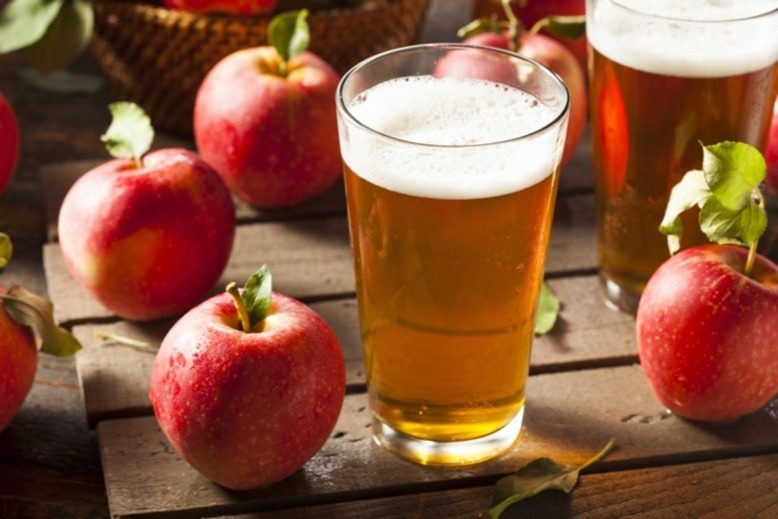
The apples best suited for cider making you won’t find at the supermarket or even your local farmers market. That’s because the best hard cider—not the cloudy, sweet, farm-fresh jugs—is made with bittersweet and bitter sharp apples that are gnarly, knobby, tart and tannic.
Varieties like Kingston Black, Ashmead’s Kernel and Hewe’s crabapple are often referred to as spitters because of their off-putting flavors and textures. Fermentation, however, transforms them into a tasty, complex beverage.
Few of these gnarly specimens are grown in New Jersey. Chalk that up to the high cost of land and the hurdles in getting licensed to produce alcoholic beverages, as well as the effects of climate change—but most of all, to Prohibition.
Dating to Colonial times, the Garden State was a cider powerhouse, home to abundant orchards and mills. Cider was more popular than wine or beer. But Prohibition led to the mass removal of cider-apple trees here.
New Jersey “does have some catching up to do,” says Cameron Stark, cider maker for Ironbound Hard Cider in Asbury. “At one time, cider was the beverage of choice.”
While cider apples have made a comeback in the Hudson Valley, the Finger Lakes and parts of Virginia, New Jersey’s legacy has yet to be fully restored.
“We’re one of the top ten largest apple producers in the Union,” says John Coates, owner of Burnt Mills Cider in Bedminster, which opened in 2020. “I am surprised there aren’t more producers in the area.”

Harrison apples, a leading cider variety, await pressing at Ironbound Hard Cider in Asbury. Photo courtesy of Ironbound Hard Cider
Local cideries like Burnt Mills have been working to revive the state’s Colonial-era cider reputation, yet still have to source suitable apples from neighboring states like Pennsylvania and New York to meet demand. Ironbound, launched in that Newark neighborhood in 2016 (originally with orchards in Warren County), has hung its hat on bringing back the historic Harrison apple. They can largely be credited with bringing a Jersey-made cider back to taps and shelves—but they rely on a grower in upstate New York to provide much of their fruit.
Many people associate cider with sweetness, but some of the best are complex, tart and funky, like a high-acid white wine or farmhouse ale. They’re apple-y, not syrupy, with a slight bitterness, yet delightful.
“There’s a misconception of what cider can be,” says Stark, who worked in the wine industry in Napa Valley for many years. He returned to his East Coast roots to make wine at nearby Unionville Vineyards before shifting his focus to cider making. “I make cider like I would make wine.”
For Stark, that means fermenting the freshly pressed apple juice until it’s “pretty much bone-dry. We want a cider that is very clean, no cloying aspect to it,” he says, “like a pretty white wine with good acidity and a hint of tannic structure.”
Both Ironbound Hard Cider and Burnt Mills Cider have tasting rooms open to the public. If you’re curious about hard ciders from other regions, including New York, France, Spain or the UK, Wurstbar in Jersey City serves an extensive list.
Dry cider pairs exceptionally well with all kinds of food, including turkey and all the trimmings of a classic Thanksgiving dinner. And, as noted, it’s a quintessential American beverage, one worth giving thanks for. As Burnt Mills’ Coates says, “As an American, who wouldn’t like apples? It’s great stuff.”
No one knows New Jersey like we do. Sign up for one (or more!) of our newsletters to get the best of where we live sent to your inbox every week. Want a print magazine mailed to your home? Purchase an issue from our online store.
